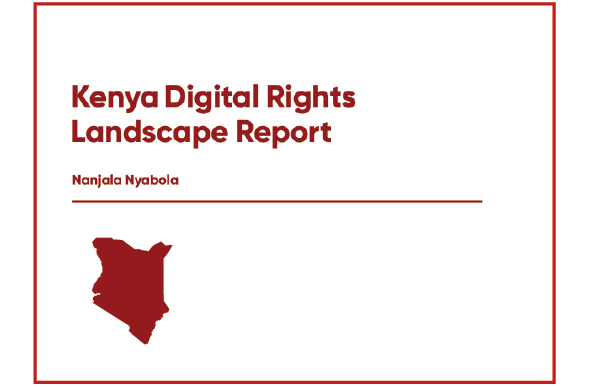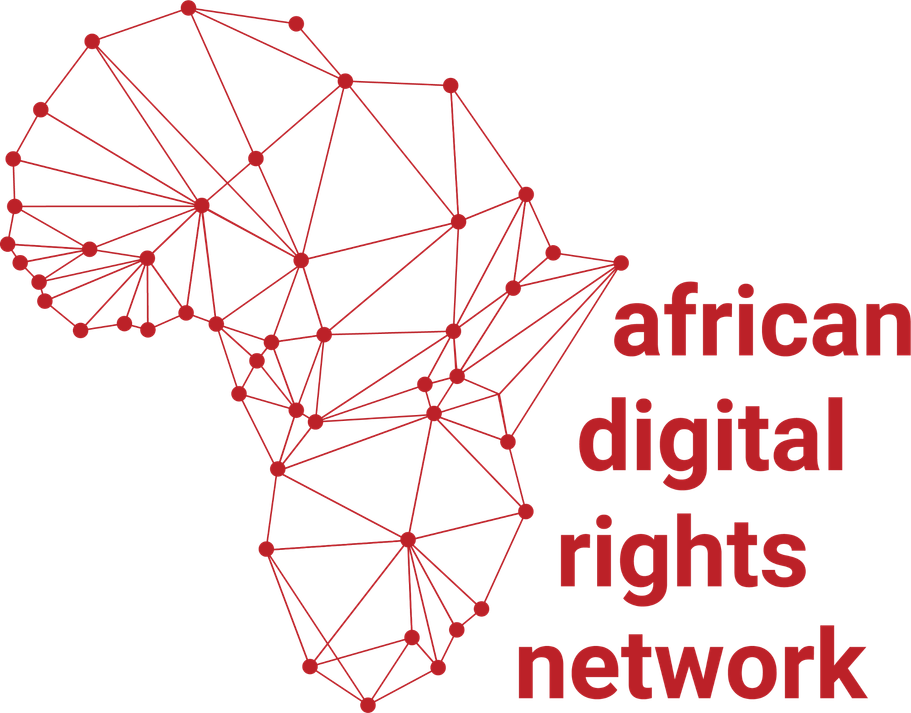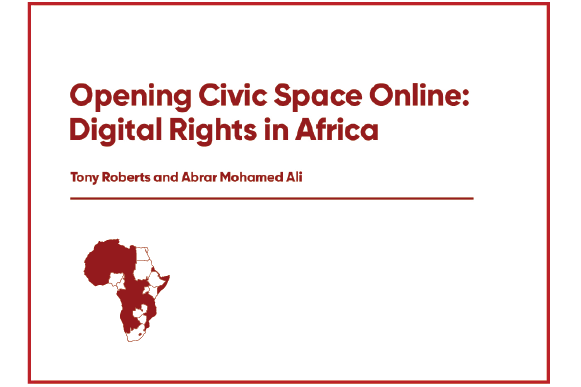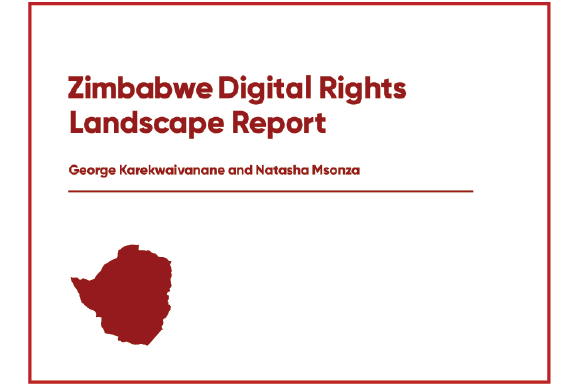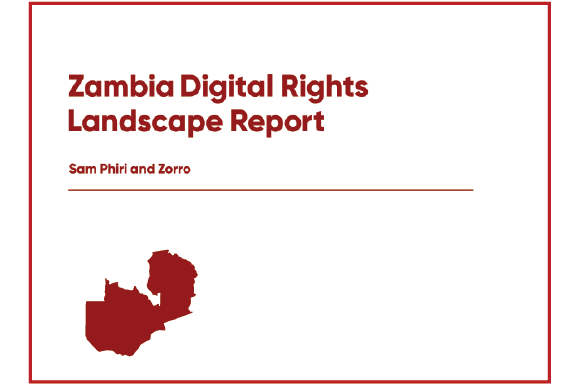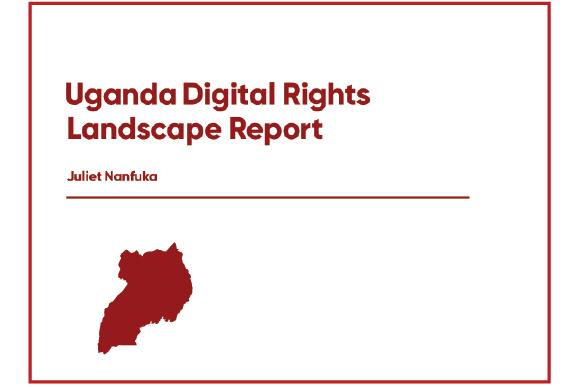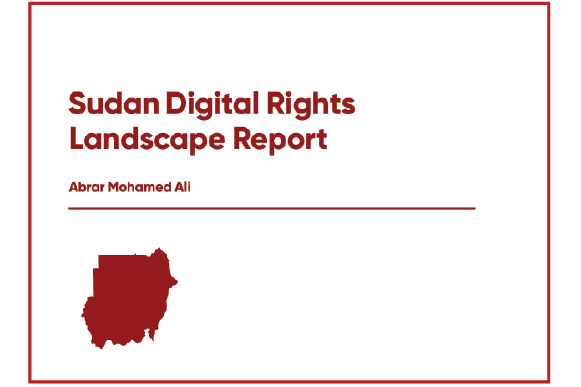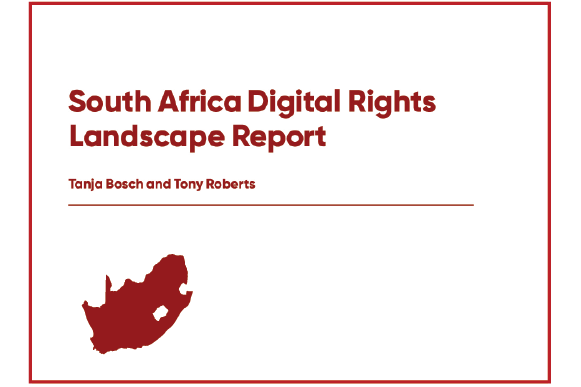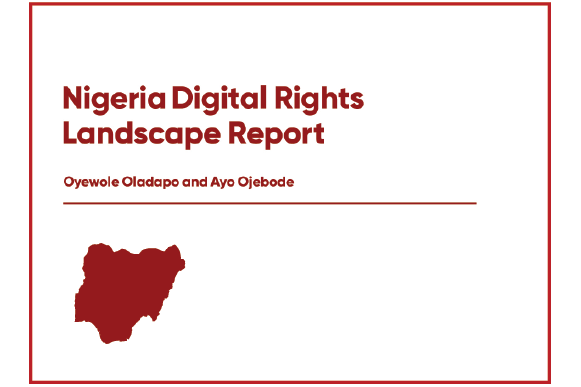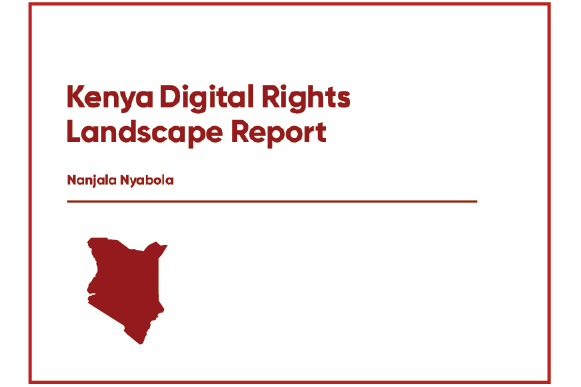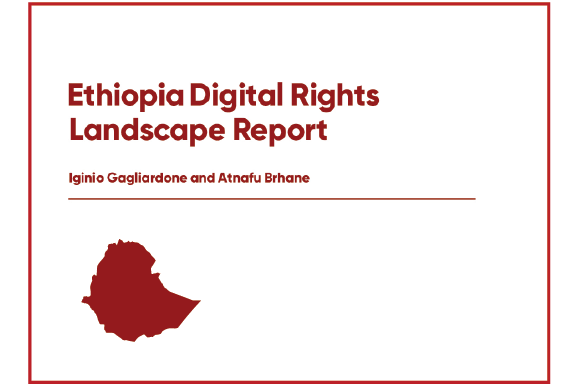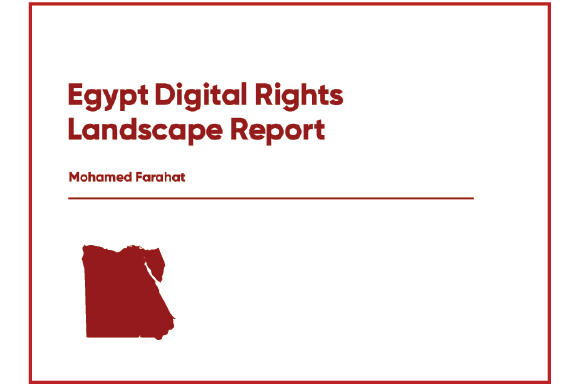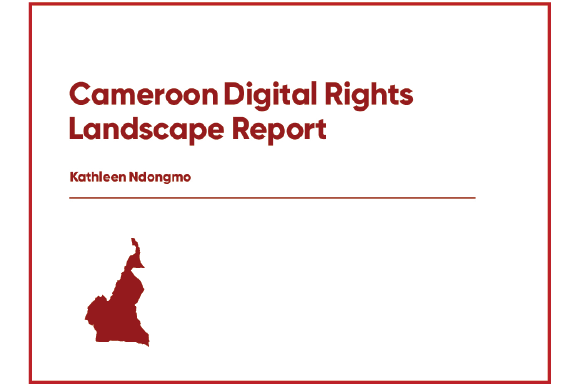ADRN Digital Rights Reports
All of our reports are open access and free to download by following the links below
Digital Rights in Closing Civic Space:
Our first landscape report documented positive examples of digital citizenship to open civic space online and negative practices of digital authoritarianism to close civic space online.
Surveillance Law in Africa:
This unique report analyses how privacy rights are guaranteed in African constitutions but violated with impunity and shows how focused surveillance can be balanced with citizen's rights.
Mapping the Supply of Surveillance Technology to Africa:
The first analysis across all Africa's regions of which companies from which countries are supplying which rights-violating technologies to African governments.
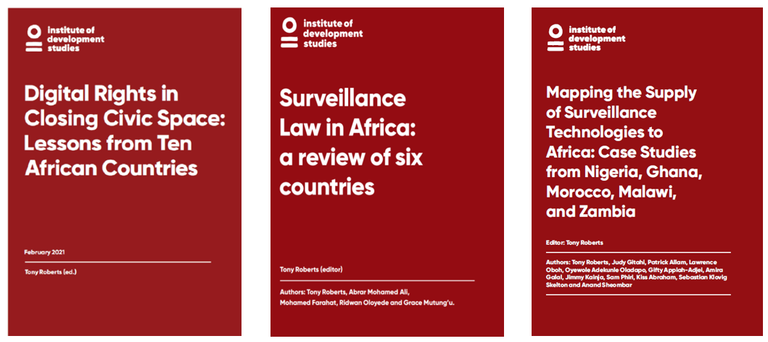
Digital Africa book series :
July 2023
ADRN members are producing a six-book series of collected edition books on digital right with
Zed Books / Bloomsbury.
In 2024 we will publish a series of books on digital authoritarian practices, starting with
"Digital Disinformation in Africa: hashtag politics, power, and propaganda" and then "Digital Surveillance in Africa: power agency and rights".
All the books feature chapters from different countries across the continent authored by experienced and emerging scholars from the region.
We are also working on a follow-up to our first book on digital citizenship in Africa called "Feminist Digital Citizenship in Africa", co-edited by Tanja Bosch and Tony Roberts.
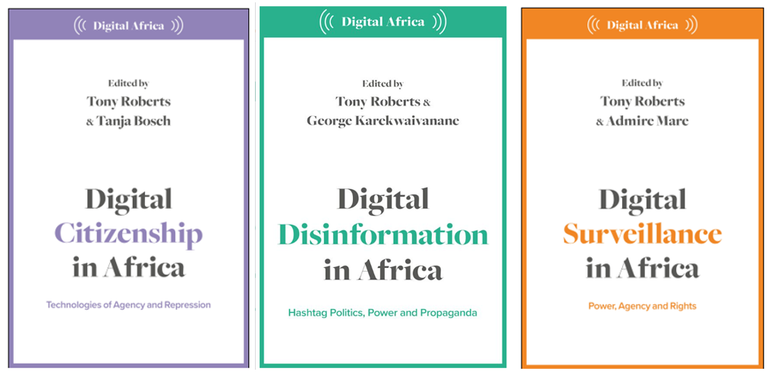
Call for Chapter Abstracts for a New Book:
'Internet Shutdowns in Africa: digital rights, repression, and resistance.'
9 October 2023
Call for Chapter Abstracts for a New Book:
'Internet Shutdowns in Africa: digital rights, repression, and resistance'
Edited by Felicia Anthonio and Tony Roberts
A collected edition to be published by Zed Books in 2025
Call for abstracts:
We invite abstract submissions for chapters to be included in a collected edition book on the implementation of internet shutdowns and civic responses.
During contentious elections, protests or conflict some governments switch the internet off, shrinking democratic space, and violating fundamental human rights to access information, to freedom of expression, assembly and association. Internet shutdowns have occurred in at least 37 countries out of Africa’s 55 countries since 2016. In some countries they happen regularly and at predictable times such as elections, protests, during conflicts and even during school exams.
They are triggered by different perceived threats in different countries. Shutdowns are used as a tactic of war, to blackout news of state violence, or to disrupt opposition protests. Internet shutdowns take a very wide range of different forms: they can be nationwide or localised, they can target a specific social media platform or website, or they can be in the form of throttling or slowdown of internet traffic or in the form of a complete shutdown (near-zero dip in internet traffic). Shutdowns impact diverse aspects of people's lives, violate a wide range of human rights and have dramatic social, political and economic consequences – some intended and others unintended.
Different demographic groups are affected in very different ways during shutdowns. Internet shutdowns can last hours, days, weeks, months, and even years. A range of tactics are now being employed by citizens to prevent, protest, and end internet shutdowns and defend the right to information, communication, and online expression.
This is the first ever book-length analysis of the causes, types, consequences, and responses to internet shutdowns across Africa. This volume will provide rich case studies of different kinds of internet shutdown from countries across the continent. It will analyse the causes, types, and roles played by state, corporate and civic actors to provide recommendations to end internet shutdowns. As such it provides the first opportunity to make a comparative assessment of internet shutdowns in Africa and produce actionable recommendations based on such analysis.
We invited potential authors to indicate their interest by submitting a 250-word abstract by 31st October 2023 indicating what the chapter would cover. Please include a short bio or CV, along with your submission. We welcome submissions from activists and practitioners as well as from emerging and established scholars.
Submit your abstract to felicia@accessnow.org and t.roberts@ids.ac.uk with “Internet Shutdowns in Africa” in the subject line. If your proposal is accepted, we will ask you to attend an online meeting in December 2023 and to submit a 4-page draft in January 2024, then an 8-page draft in March and a 6,000 word draft in May 2024. Full final papers of approx. 7,000 words will be due in June 2024. Editorial review and feedback will be provided by the editors in addition to peer-review from the other chapter authors and an external reviewer.
We look forward to receiving your submissions.
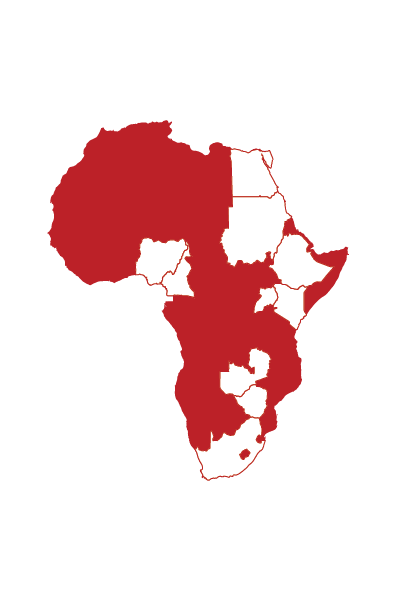
New Publication:
Mapping the Supply of Surveillance Technologies to Africa: Case Studies from Nigeria, Ghana, Morocco, Malawi, and Zambia
9 October 2023
African governments are spending over 1US$bn per year on digital surveillance technologies which are being used without adequate legal protections in ways that regularly violate citizens’ fundamental human rights.
This report documents which companies, from which countries, are supplying which types of surveillance technology to African governments. Without this missing detail, it is impossible to adequately design measures to mitigate and overcome illegal surveillance and violations of human rights. Since the turn of the century, we have witnessed a digitalisation of surveillance that has enabled the algorithmic automation of surveillance at a scale not previously imaginable.
Surveillance of citizens was once a labour and time-intensive process. This provided a practical limit to the scope and depth of state surveillance. The digitalisation of telephony has made it possible to automate the search for keywords across all mobile and internet communications. For the first time, state surveillance agencies can do two things: (a) conduct mass surveillance of all citizens’ communications, and (b) micro-target individuals for in-depth surveillance that draws together in real-time data from mobile calls, short message service (SMS), internet messaging, global positioning system (GPS) location, and financial transactions.
This report was produced by qualitative analysis of open-source data in the public domain. The information presented is drawn from a diverse range of sources, including open government data sets, export licence portals, procurement notices, civil society databases of surveillance contracts, press releases from surveillance companies, academic articles, reports, and media coverage. The research is organised using a typology of five categories of surveillance technology. We did not set out to detail every technology available, every company, or every supply contract. Instead, we document the main companies and countries selling digital surveillance technologies to African governments.
Rather than focus on the technical functionality distinguishing each product offering, we highlight five of the most important types of surveillance technology: internet interception, mobile interception, social media surveillance, ‘safe city’ technologies for the surveillance of public spaces, and biometric identification technologies.
Download the full report here
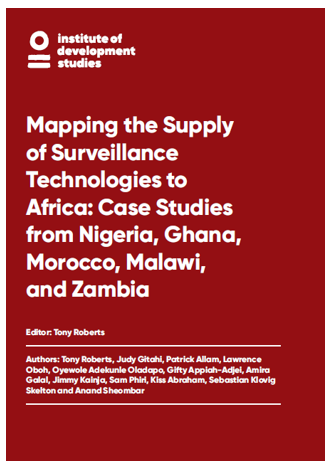
African Surveillance Law Reports Published
21st October 2021
The African Digital Rights Network has produced the first comparative analysis of how privacy rights are protected in surveillance law across six African countries: Egypt, Kenya, Nigeria, Senegal, South Africa and Sudan.
The Cambridge Analytica scandal, Snowden revelations on state surveillance and Pegasus spyware story have raised awareness about the increasingly pervasive surveillance of citizens by governments and corporations. Most of this attention has focused on the global North. This research reviews what protections are in place in African law to protect citizens against violations of their privacy rights.
You can download the full report here.
The reports show that:
Privacy Rights of African citizens are guaranteed in national constitutions, international human rights conventions, and domestic laws.
Mass surveillance violates those rights but governments are awarding themselves bulk surveillance powers and purchasing surveillance technologies that threaten those rights. States are investing heavily in artificial intelligence internet surveillance, mobile phone spyware, facial recognition CCTV and biometric ID.
Legislation can balance the need for narrowly focused surveillance of the most serious criminals with safeguards to protect the rights of citizens.
The reports provide a clear way forward:
Revise Laws. Fixing the law is simple where there is political will. The principles are clear and laid out in our report . Template legislation exists developed by the United Nations that provides legal definition of privacy safeguards and oversight mechanisms.
End Impunity. We found no evidence of any state actor being sacked or jailed when evidence of illegal surveillance surfaces, as it does frequently. Legislation should define suitable punishments for illegal surveillance.
Build Capacity. Authors of the country reports identified a need to raise public awareness about privacy rights and surveillance practices and to build the capacity to monitor and hold the state accountable.
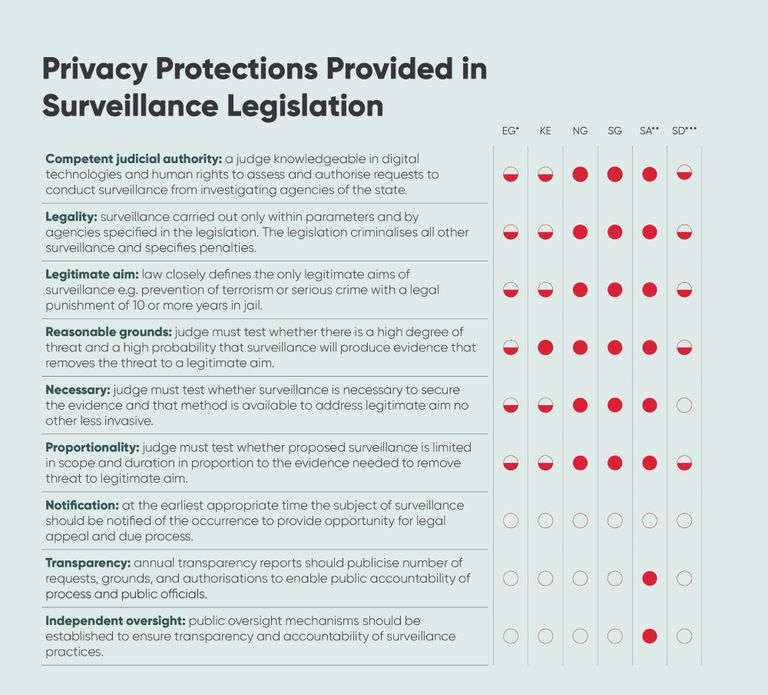
Digital Rights Landscape
Country Reports Published
26th February 2021
The African Digital Rights Network has produced the first comparative analysis of how digital technologies are being used to both open and close online civic space across ten African countries. You can download the full report here or the individual country reports at the foot of this page.
The report identifies 65 examples of citizens opening democractic spaces online and 115 examples of governments closing online civic space.
Digital Openings: the most common factors contributing to opening online civic space were
- increase digital access
- social media activism
- civic tech activism
- laws expanding rights
- digital security technologies
Digital Closings: the most common tactics being used to close online civic space were
- digital surveillance
- digital disinformation
- internet shutdowns
- legislation
- arrest for online speech
The research makes recommendations about how to address gaps in evidence, awareness, and capacity. Recommendations include working with:
- Researchers – to produce new evidence about surveillance actors, tools, tactics and techniques.
- Journalists – to raise awareness about the practices and consequences of surveillance.
- Policymakers – to map existing legislation, identify gaps and advance a public policy agenda.
- Activists – to expand civic engagement to tackle surveillance, disinformation and shutdowns.
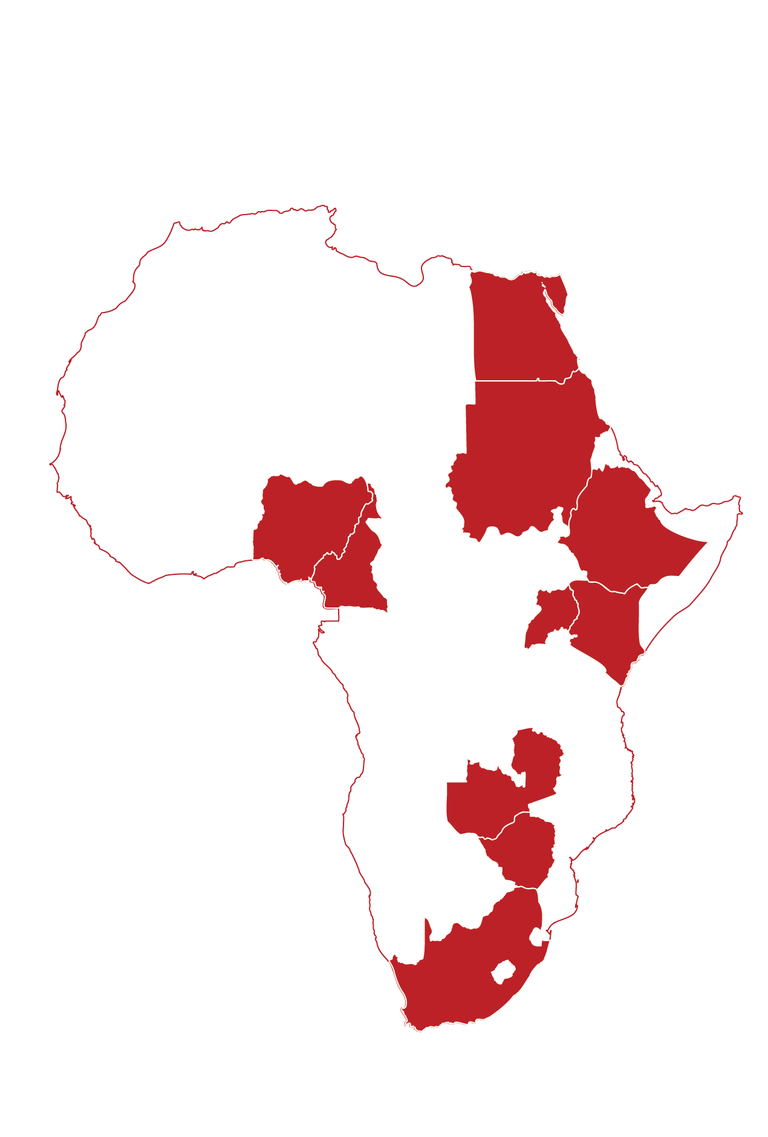
In The Spotlight: Nigeria
20th April 2021
Increased police violence against peaceful street protestors is closing civic space in Nigeria. With their freedom of opinion and freedom of expression under attack in offline spaces, millions of Nigerians go online to use social media to protest and hold government accountable. The recent #ENDSARs campaign against police brutality is a clear illustration of this opening of online civic space and it is well documented in the Nigerian Digital Rights Landscape Report.
However, the challenge of online protest is that it leaves digital traces for state security forces to track citizens. As the report shows, the Nigerian government has invested heavily in artificial intelligence-based technologies from the Chinese tech giant Huawei which allows it to conduct mass surveillance on citizens' mobile and internet conversations. By this means voices critical of the government can be targetted for attack online by government trolls or targetted offline by the police.
The future of digital rights in Nigeria depends partly on the laws that govern digital spaces. Laws can be used to either protect or diminish the right to privacy, opinion, and speech. This Digital Rights report argues that the interpretation of existing laws in Nigeria have had the effect of discouraging civic participation and that proposed news laws contain even more ominous clauses.
Download the Nigeria Digital Rights report here authored by Dr. Oyewole Oladapo and Dr. Ayo Ojebode

Digital Rights in Zambia
12th April 2021
The Zambia country report report details how civic space in the country has narrowed for peaceful opposition and independent journalism. It also highlights the threat to online civic space posed by major new investments to expand state surveillance and restrict freedom of expression. A 250-million-dollar National Command Infrastructure tower block has been erected next to the national intelligence headquarters in Lusaka and proposed new laws threaten the right to privacy and to freedom of speech.
The report begins by outlining how the country’s wider political landscape shaped openings and closing of civic space. The authors shows how previous changes to the Public Order Act, Penal Code and NGO Act were used to censor freedom of expression and curtail civic rights in offline spaces. Now the attention of Zambia's legislature has shifted to controlling online spaces. A raft of proposed new Bills are causing alarm in civil society including the Cyber Security Bill, e-Government Bill; Data Protection Bill; and Cyber Security Bill. Civil society organisations have detailed the range of ways that these laws threaten to restrict human rights online.
The extension of existing efforts to close civic space to the growing digital public sphere in Zambia has been accelerated by the coronavirus pandemic. Since recording the first Covid19 cases in March 2020 presidential decrees have regularly been used to narrow the civic space for opposition voices in the run up to national elections in August.
Download the Zambia report here authored by Dr. Sam Phiri and Zorro.
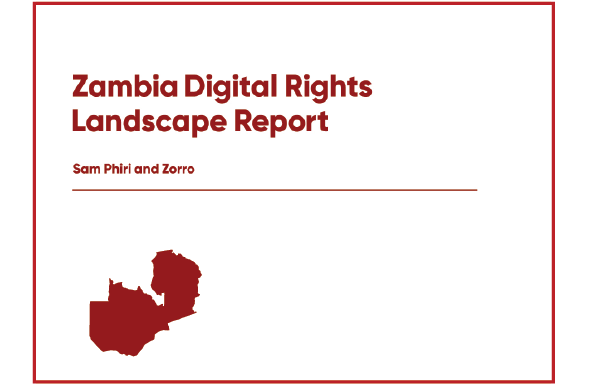
Ethiopia Digital Rights
Landscape Report
24th March 2021
The political context shapes online and offline rights in Ethiopia. There was a dramatic closing of civic space by the government when the ruling party suffered electoral losses in 2005. Ethiopian activists used blogging to open online civic space and voice their opposition. Homegrown blogging platforms like Nazret pre-dated websites like the Huffington Post by many years. In 2014 online expression came under attack when critical journalists and the Zone9Bloggers were arrested. Atnaf Brhane, co-author of the Ethiopia Digital Rights country report, was one of the arrested Zone9Bloggers and spent 540 days in jail before joining Ethiopian digital rights organisation CARD.
This Digital Rights report documents how the Ethiopian government has procured FinSpy and Hacking Team technology from Europe and surveillance training from the US government enabling the state to breach citizens’ right to private communications. The government’s centralised control of telecommunications has also made it relatively easy to enact internet shutdowns at the local and national levels. Often the closing of online space was targeted on the Oromia region specifically where opposition was being expressed.
The Digital Rights Landscape in Ethiopia is at a crossroads. On the one hand, protests ushered in the media and civic space reforms of new Prime Minister Abiy Ahmed. On the other hand the reforms have created tensions within the ruling elite that have resulted in civil war and violent repression. Online openings have proven to be fragile and subject to rapid reversal, often at the flick of a government-controlled switch. Download the Ethiopia report here authored by Iginio Gagliardone and Atnaf Brhane.
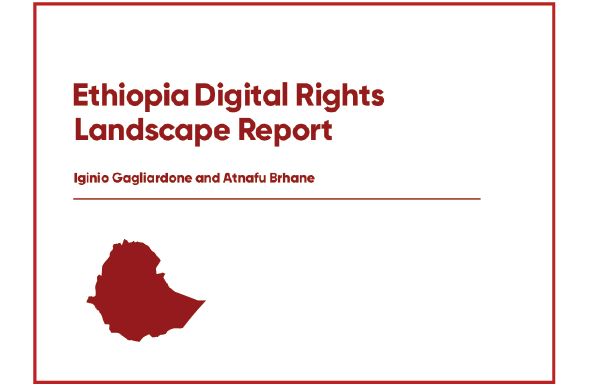
Sudan Digital Rights
Landscape Report
19th March 2021
Closing civic space in Sudan has forced human rights advocates to flee the country. Journalists and demonstrators experience police violence, and incarceration. The country has been ranked as one of the least free countries in Africa by Freedom House.
The Sudan Country Report charts the contours of the Digital Rights Landscape around the uprising that ousted the corrupt regime of al-Bashir in 2018-2019. The report graphically illustrates how online space has become key to the exercise of fundamental human rights including the right to privacy, freedom of expression, freedom of assembly and freedom of political opinion.
During the popular uprising Sudanese citizens took to the streets to protest and created viral hashtags such as #BlueforSudan #SudanUprising and #IAmTheSudaneseRevolution. However, the Transitional Military Council (TMC) that replaced al-Bashir in April 2019 was itself imposing internet shutdowns by June of the same year – to suppress the military crackdown that left hundreds dead, injured and raped.
Internet shutdowns are often used to cover up human rights abuse as well as itself being an abrogation of citizens' right to information, communication and expression. The Sudanese authorities are now investing heavily in surveillance technologies to monitor citizens’ mobile and internet messages. Citizens are responding by developing their own use of anonymisation software including virtual private networks (VPNs), and encrypted messaging apps such as Signal. Download the Sudan report here authored by Abrar Mohamed Ali.
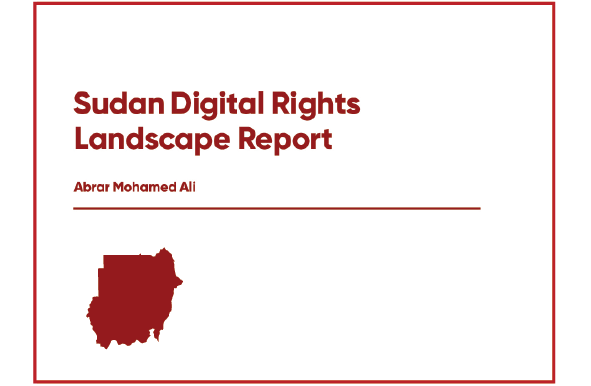
Kenya Digital Rights
Landscape Report
14th March 2021
Kenya is one of the most digitally connected countries in Africa and a global leader in the use of mobile money. It boasts a vibrant civil society despite restrictive laws and arrests of journalists and bloggers for online expression.
The Kenya Digital Rights Country Report highlights the positive use of social media by Kenyan activists as well as repressive measures by the state. Kenyan 'civic tech' innovations, most famously Ushahidi and iHub, spawned hundreds of imitators across the continent, using digital technologies to highlight rights abuse and build practical solutions.
The report charts a dramatic contraction in civic space in Kenya since the post-election violence of 2007 and the rise of repressive state surveillance and disinformation. The report notes that Cambridge Analytics was hired by the Jubilee Aliance in Kenya's 2013 elections several years before their Brexit and Trump work led to the company's shutdown .
The report argues that the reduction in offline civic space in Kenya explains why most recent civic rights victories have come - through necessity - from digital campaigning and strategic litigation as these are the spaces that remain open. Download the Kenya Digital Rights Landscape Report here. Authored by Nanjala Nyabola.
